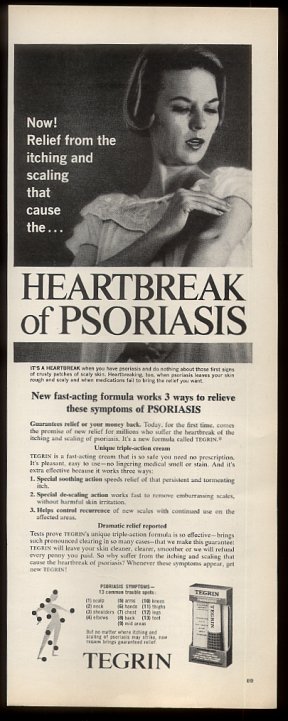Psoriasis social impact: Difference between revisions
No edit summary |
|||
| Line 4: | Line 4: | ||
==Overview== | ==Overview== | ||
The quality of life is an important factor in evaluating the severity of the disease. There are many treatments available but because of its chronic recurrent nature psoriasis is a challenge to treat. | |||
==Social Impact== | ==Social Impact== | ||
Revision as of 18:00, 22 August 2012
|
Psoriasis Microchapters |
|
Diagnosis |
|---|
|
Treatment |
|
Case Studies |
|
Psoriasis social impact On the Web |
|
American Roentgen Ray Society Images of Psoriasis social impact |
|
Risk calculators and risk factors for Psoriasis social impact |
Editor-In-Chief: C. Michael Gibson, M.S., M.D. [1]
Overview
The quality of life is an important factor in evaluating the severity of the disease. There are many treatments available but because of its chronic recurrent nature psoriasis is a challenge to treat.
Social Impact
Effect on the quality of life
Psoriasis has been shown to affect health-related quality of life to an extent similar to the effects of other chronic diseases such as depression, myocardial infarction, hypertension, congestive heart failure or type 2 diabetes. Depending on the severity and location of outbreaks, individuals may experience significant physical discomfort and some disability. Itching and pain can interfere with basic functions, such as self-care, walking, and sleep. Plaques on hands and feet can prevent individuals from working at certain occupations, playing some sports, and caring for family members or a home. The frequency of medical care is costly and can interfere with an employment or school schedule.
Individuals with psoriasis may also feel self-conscious about their appearance and have a poor self-image that stems from fear of public rejection and psychosexual concerns. Psychological distress can lead to significant depression and social isolation.
"The heartbreak of psoriasis"

The phrase "the heartbreak of psoriasis" is often used both seriously and ironically to describe the emotional impact of the disease. It may include both the effect of having a chronic uncomfortable disorder and the social effects of being self conscious of one's appearance. The term can be found in various advertisements for topical and other treatments; conversely, it has been used to mock the tendency of advertisers to exaggerate (or even fabricate) aspects of a malady for financial gain. While many products today use the phrase in their advertising, it originated in a 1960s advertising campaign for Tegrin, a coal tar-based ointment.